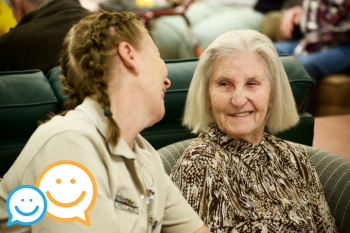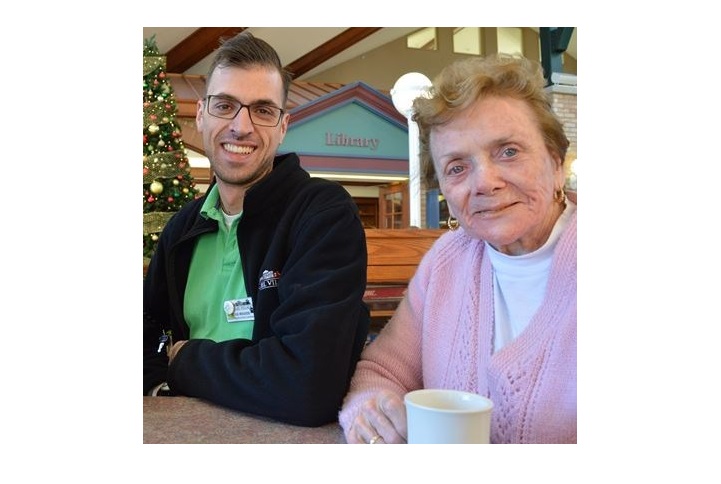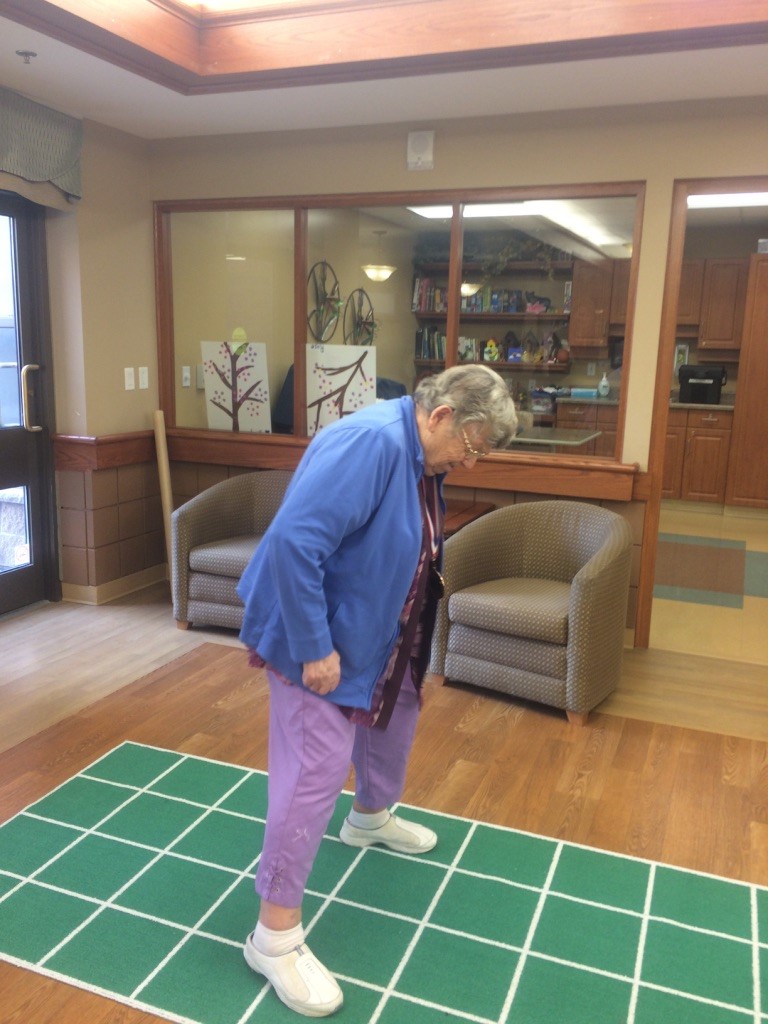One of the most effective resources employed by Schlegel Villages to reduce stigma and challenge the stereotypes that accompany the word dementia is a six-module education program known as LIVING the Dementia Journey.

LIVING The Dementia Journey is one more tool to help
team members and residents grow closer together.
The program offers new understanding and encourages team members to support each resident by being present in every moment while urging them to consider the underlying causes of each personal expression, whether positive or challenging. In doing so, each team member connects with each resident in a deeper way, and the support they offer is truly centred on the needs of each person.
Developed in partnership with the Murray Alzheimer Research and Education Program (MAREP) and the Schlegel/UW Research Institute for Aging (RIA), the program was recently recognized by the Ontario Long-Term Care Association as the Best New Product or Service of the Year at the association’s annual conference.
Bryce McBain, the general manager at Riverside Glen in Guelph, says providing great service and care for people living with Alzheimer’s disease and other forms of dementia begins with the right team members. “It’s important that we start off with kind, caring people that are not judgmental and really support our Schlegel Villages values,” Bryce says. When those team members are then offered the right opportunities to engage in new knowledge, their sense of empathy grows and their understanding of the individual nature of dementia helps them offer truly individualized support.
Bryce says one of the great challenges in society today is that when people think of dementia, they think of Alzheimer’s disease and memory loss, but they really can’t articulate much more beyond that. Dementia, however, is much more complicated than this and in the first session of the LDJ program offers people a glimpse of the experience of dementia from the perspective of those who are living with it. It sets the stage for new understanding and as the program progresses through each module, the depth of that knowledge grows, building upon the other dementia-specific training and resources available to the team, such as Behavioural Supports Ontario and the Personal Expressions Resource Team.
LDJ, Bryce says, “sets you up to really understand that dementia shouldn’t be about losing selfhood; it should be about changing our focus to how we help people live a better life today.” The program, he says, instills a sense of confidence in his team, knowing they have the knowledge to make a difference in residents’ lives.
L is for “learning about the experience of living with dementia,” and it offers people a glimpse of the experience of dementia from the perspective of those who are living with it.
I is for “improving personal well-being,” which is about exploring everyone’s definition of well-being and discussing how care partners can use creativity and collaboration to engage people living with dementia in decision-making.
V is for “validating and honouring each person in the moment.” This module focuses on the importance of flexibility and self-determination and the threats to these basic human necessities that exist in many care settings.
I is for “interpreting personal expressions, actions and reactions.” This cornerstone of the philosophy seeks to shift the current, primary focus on interventions for “responsive behaviours” to better understanding and meeting each person's needs proactively. This module also suggests that personal expressions, actions and reactions are reflections of personal identity, experiences, desires, and needs.
N is for “nurturing all relationships”, and people gain insight into the concepts of relationship-centred and relational care in the understanding that every care partner has a part to play in the enhancement of life quality.

G is for “greeting each day as an opportunity for meaning, purpose and growth,” and celebrating the experiences and rituals of life, leisure, culture, and the spirit.
For more information on LIVING The Dementia Journey, please visit www.livingdementia.ca
- Previous
- View All News
- Next










